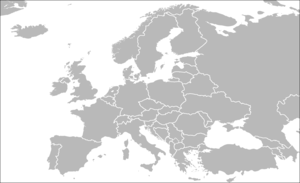
- Image via Wikipedia
The economic downturn has taken its toll on scientists and educators. Now, university presses in Europe are facing funding cuts. One press is closing. Others are cutting back on the number of titles they’re publishing. And a new European university press association is being planned as the presses circle their wagons.
A vicious cycle has taken hold of the fortunes of these presses — as universities try to balance their books, they are raising fees on students, limiting the students’ ability to buy books, which further imperils the university presses, leading certainly to some diminution of revenues that will need to be offset in some other way, possibly through further fee hikes.
The new University Press Association is planned to include 40 presses from 12 countries. A dozen of the presses in the founding group are from the UK. They are contemplating a comparable British association.
Small, specialized presses certainly can thrive in the changing economic environment. But to survive economic turmoil while also adapting to the seismic shift the digital world has introduced will take real creativity — and probably some true visionaries both at these presses and within the institutions they call home.
Discussion
3 Thoughts on "European University Presses Fold, Consolidate in Economic Downturn"
Good. Time for universities to focus on the core business – education. Let’s hope any future developments are sensible enough to take an Open Access approach and adopt new technologies rather than echoing the publishing failures of the past.
For “real creativity”, new technologies and Open Access in academic publishing take a look at Cambridge based Open Book Publishers (www.openbookpublishers.com).
![Reblog this post [with Zemanta]](http://img.zemanta.com/reblog_e.png?x-id=650cf59a-523f-4d2a-8a54-57272d2d5f1d)

